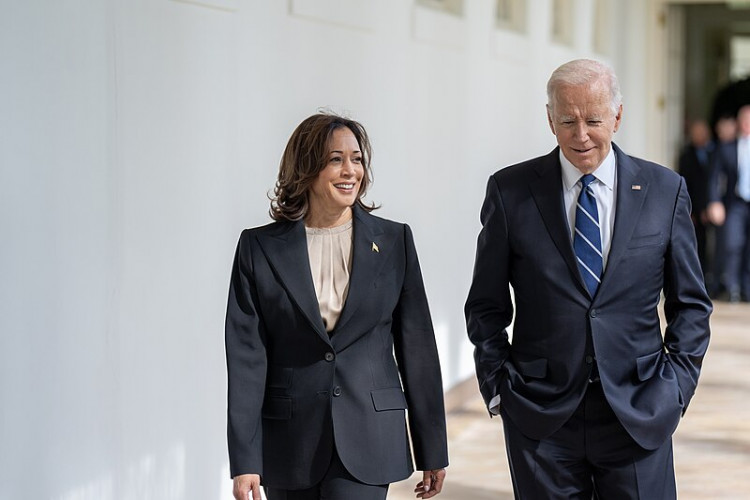President Joe Biden's decision to withdraw from the 2024 presidential race has stirred a whirlwind of political speculation and strategy shifts. Biden's private concerns about Vice President Kamala Harris' ability to defeat former President Donald Trump were a significant factor in his hesitation, according to several aides. These concerns reflect broader questions within the Democratic Party about Harris' viability as the nominee.
Biden, 81, who has faced increasing doubts about his mental acuity and overall fitness for office, announced his decision to step down and endorse Harris, 59, in a public statement. "While it has been my intention to seek re-election, I believe it is in the best interest of my party and the country for me to stand down and focus solely on fulfilling my duties as president for the remainder of my term," he said. Biden described selecting Harris as his vice president as "the best decision I've made."
Despite his public endorsement, Biden's aides revealed his apprehensions about Harris' performance, particularly her management style. One incident that troubled Biden involved Harris' interrogation of her then-chief of staff, Karine Jean-Pierre, which reportedly made others uncomfortable. These private doubts contrast sharply with the unified front Biden presented in his announcement.
Trump, who has already begun campaigning vigorously, quickly seized on Biden's withdrawal and Harris' new role. "Harris will be easier to beat than Joe Biden would have been," Trump told CNN. On his social media platform, Truth Social, Trump reiterated his claims that Biden was unfit for office and predicted a swift remedy to what he described as the damage caused by Biden's presidency.
The Trump campaign is adjusting its strategy to target Harris directly, focusing on her association with Biden's policies, particularly on immigration and inflation. The campaign released a video on Sunday afternoon criticizing Harris' handling of immigration issues, alleging neglect and failure to stem the flow of migrants into the United States. "Harris was Biden's enabler in chief," the campaign stated, emphasizing that both politicians share responsibility for the administration's record.
Harris, for her part, has launched an aggressive campaign to secure her position as the Democratic nominee. Known for her "impressive shock and awe campaign," Harris has moved swiftly to consolidate support within the party. Most House Democrats, Senate Democrats, and twelve of the nation's 23 Democratic governors have expressed their support for her candidacy.
In her statement following Biden's announcement, Harris acknowledged the gravity of the moment. "With this selfless and patriotic act, President Biden is doing what he has done throughout his life of service: putting the American people and our country above everything else," she said. Harris emphasized her commitment to earning and winning the nomination, highlighting her extensive travel and conversations with Americans about the critical choice facing the nation.
The political landscape remains volatile as both parties adjust to the new dynamics. While Biden's endorsement of Harris aims to present a united front, the Democratic Party still faces internal debates about her candidacy. High-profile figures like former President Barack Obama and House Speaker Nancy Pelosi have yet to formally endorse Harris, although they have praised Biden's decision to step aside.
The Trump campaign, meanwhile, is recalibrating its resources and messaging. Trump's team is confident that tying Harris to Biden's record will be an effective strategy, but they also acknowledge the need to adapt to her specific strengths and weaknesses as a candidate.
The RadarOnline and Reuters contributed to this report.






